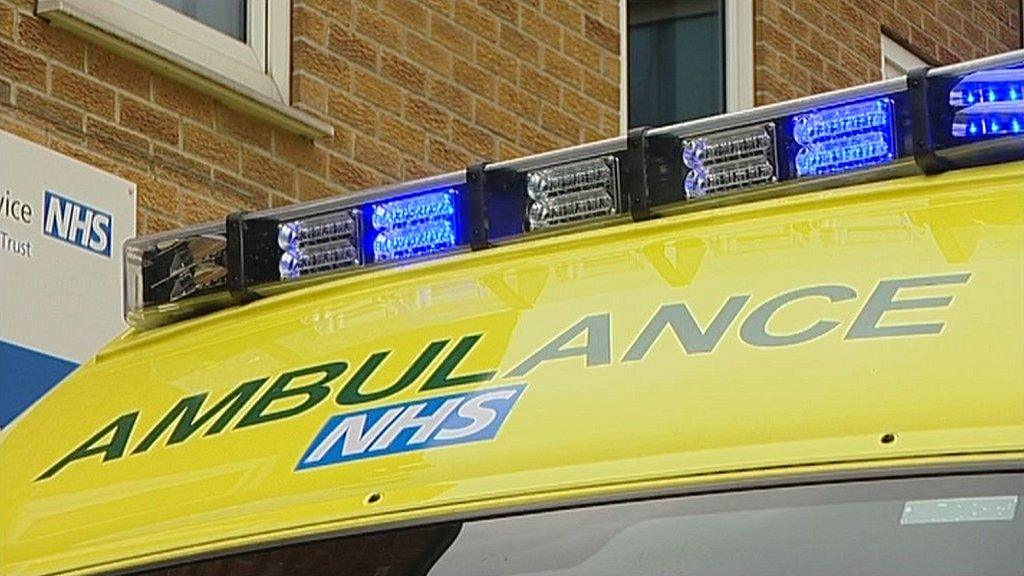NHS spend on private ambulances trebles in four years
- Published
Private ambulances: 999 calls costs rise to £68m
NHS spending on private ambulances for 999 calls in England has trebled in four years, BBC research has found.
Ambulance trusts paid private companies and voluntary organisations £68.7m to attend emergency calls in 2015-6, compared to £22.1m in 2011-2. They respond to all types of calls.
NHS England said 999 calls for ambulances rose 4.5% last year.
Unions attacked "creeping privatisation" and called for more money for staff recruitment.
The ambulance service in England took 861,000 emergency phone calls in March 2016 - which equates to 27,800 a day - compared to 22,400 calls a day in March 2015, a rise of 24%.
Contractors include private firms and charities such as St John Ambulance and the British Red Cross.
Is the ambulance service at breaking point?
Martin Flaherty, of the Association of Ambulance Chief Executives, said trusts faced "unprecedented levels of demand" and used private or volunteer services "in support when absolutely necessary... at times of peak demand".
Of the 11 ambulance trusts, South Central spent the most; £13.6m in the year to April 2016. London spent £11.9m, according to Freedom of Information requests gathered by BBC South East.
West Midlands and Isle of Wight said they rarely or never use ambulances from independent providers. East of England gave nine months of data for 2015-16.
Paramedic shortage
South East Coast Ambulance Service (SECAMB) said private ambulances responded to 9% of its emergency calls last year, at a cost of £10.4m. The previous year it spent £12.3m.
SECAMB operations manager James Pavey said it faced an "extraordinary rise in demand" and had a growing shortage of paramedics.
Some trusts, such as London and SECAMB, are now hiring from abroad, including Australia.
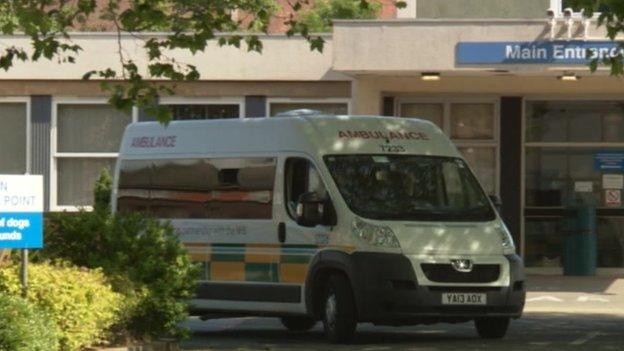
Nine of 11 NHS ambulance trusts in England use independent providers for some 999 calls.
The College of Paramedics said there were problems recruiting and retaining sufficient staff, who now have to be trained to degree level.
College director Richard Webber said: "In the long term, we should not be using private providers in the way we are, but we do need to provide a safe and effective service to the public."
"We should employ more people, training and supporting them effectively and providing that as part of the NHS."
A Department of Health spokesman said: "We have employed 2,000 more paramedics since 2010 and training an extra 1,900 over the next five years."
Unions said money should not be leaving the NHS and called for higher pay to attract staff.
Alan Lofthouse, Unison lead officer for ambulance workers said: "It is creeping privatisation, something we are very concerned about.
"In the short term people need an ambulance. But in the long term they can not be part of a fully-funded system because there is a profit being made by private companies."
Extra scrutiny
Private providers said they were regulated by the Care Quality Commission (CQC) and faced more scrutiny than NHS ambulance services.
Alan Howson, of the Independent Ambulance Association, said any perception of private ambulances being unsafe was out-of-date.
"This is no longer back-street ambulance services providing independent cover.
"Quite often, crews from independent ambulance providers perform better than their NHS counterparts and that is also borne out from patient feedback."
James Barnes of the Private Ambulance Company, which has a contract for the East of England, said: "There is a strict set of guidelines we have to meet or could be shut down."

Analysis: Nick Triggle, health correspondent
Using private ambulances to answer 999 calls is just another example of the health service under pressure. The number of calls to ambulances has more than doubled in the past decade to over 9m a year.
They are also facing increasing delays at hospital with A&E departments run ragged dealing with the record numbers of patients coming through their doors. Crews find themselves queuing before they can handover their patients.
It means the eight minute target for responding to patients is being missed - by a record margin. Unions say recruitment and retention is a major issue in many services.
So bosses are turning to private firms. They are fully regulated and vetted, but the situation is still far from ideal.

- Published23 May 2016
- Published17 June 2015
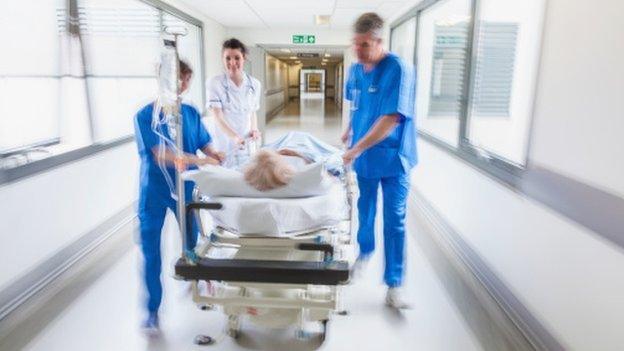
- Published22 October 2014
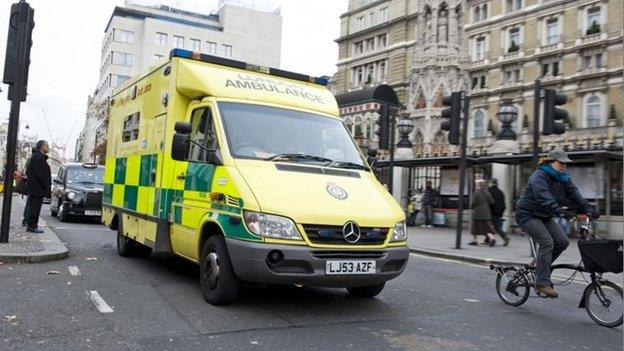
- Published31 July 2014
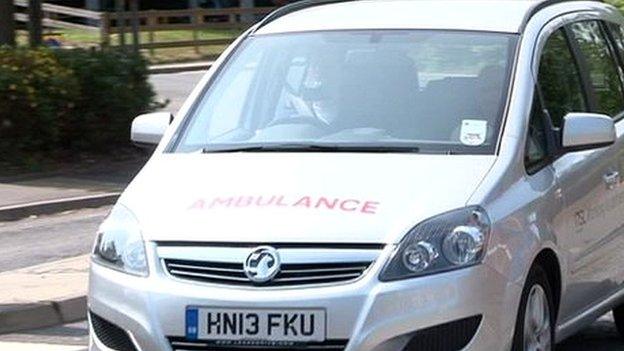
- Published28 July 2014
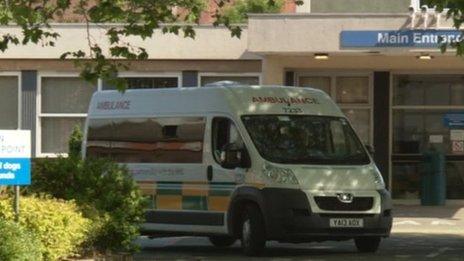
- Published9 August 2013
